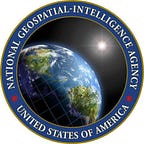What to Read about ISIL
By Youssef Aboul-Enein
The views expressed in this article are those of the author and do not reflect on the official policy or position of the National Geospatial-Intelligence Agency, the National Intelligence University, the Department of Defense, or the United States Government.
As a National Intelligence University faculty member who focuses on teaching about the nuances of Islam, Islamist political theories and militant Islamist groups, I have been asked what is there to read about the Islamic State of Iraq and the Levant. I am pleased to say an NIU student drew me towards one of only two serious books on this group published so far; meaning out of the slew of initial books on the group, only two have the kind of analytic rigor worthy of considering. The book my student recommended was Michael Weiss and Hassan Hassan’s volume, “ISIS: Inside the Army of Terror” (New York: Regan Arts, 2015).
Michael Weiss is a columnist for Foreign Policy and Hassan Hassan is an analyst with the Delma Institute at Abu Dhabi. They start from the beginning, and discuss the spiritual origins of ISIL from the al-Qaida in Iraq and its founder, Abu Musab al-Zarqawi. The authors highlight Zarqawi’s vicious sectarian violence and note it was AQI that began the recruitment videos featuring music, action, violence and gore, realizing that Zawahiri monologues were not attracting a younger generation to the al-Qaida narrative. Pages offer nuances of perfect storms that enabled ISIL to take form from the violent handling of the Bashar al-Assad regime of Arab Spring protestors that fueled an insurgency to Iraq’s prime minister’s merciless sectarian politics that alienated the Sunnis.
The killing of Zarqawi in 2006 and his predecessor Abu Ayyub al-Masri in 2010 creates a chaos within AQI that enables Abu Bakr al-Baghdadi to take over. Chapters discuss the schisms within and between al-Qaida senior leaders and ISIL. The book also delves into the Syrian government’s role in enabling militant Islamists to cross into Iraq during Operation Iraqi Freedom. Pages contain perhaps one of the more comprehensive biographies of Abu Bakr al-Baghdadi, weaved together from fact and fiction; I shall leave it to the reader to deduce proximate reality about the ISIL leader, also known as Caliph Ibrahim.
The second serious book on ISIL is by Jessica Stern and J.M. Berger, well-known academics in the field of terrorism studies. Their book, “ISIS: The State of Terror” (New York: Ecco, 2015) also starts with AQI and Zarqawi and delves into aspects of the schisms inherent among various militant Islamist factions in Syria, and the fights between ISIL and Zawahiri that included ISIL’s likely assassination of a Zawahiri emissary. Readers will learn how the Khorasan Group would be a creation of AQ to compete with ISIL for recruits, and there is a decent discussion on the economics of ISIL. There is ample discussion and ideas on the level and influence of foreign fighters within ISIL’s ranks and provides thoughts on why those from the United States and Europe may be attracted to join the group. Like the first book, it analyzes the social media use by ISIL in recruitment, and delves into the nuances of how the organization funds itself and its pseudo-state.
What is clear in both books is that the continued marginalization of the Sunni population in Iraq and Syria will continue to fuel the insurgency. That is why seeing how Sunnis will be treated after the take over of Tikrit by predominately Shia ground forces with some Sunni tribal support backed by Iran will be pivotal in the coming weeks.
There is nothing like a deep dive offered by such books to aid in analytic rigor. I also thank my NIU student for educating me by introducing me to the Weiss and Hassan book.
Navy Cmdr. Aboul-Enein is on the faculty of the National Intelligence University and teaches the graduate-level Islam elective. He is the author of several books on the Middle East, and is better known for his book “Militant Islamist Ideology” (Naval Institute Paperback, 2013).
